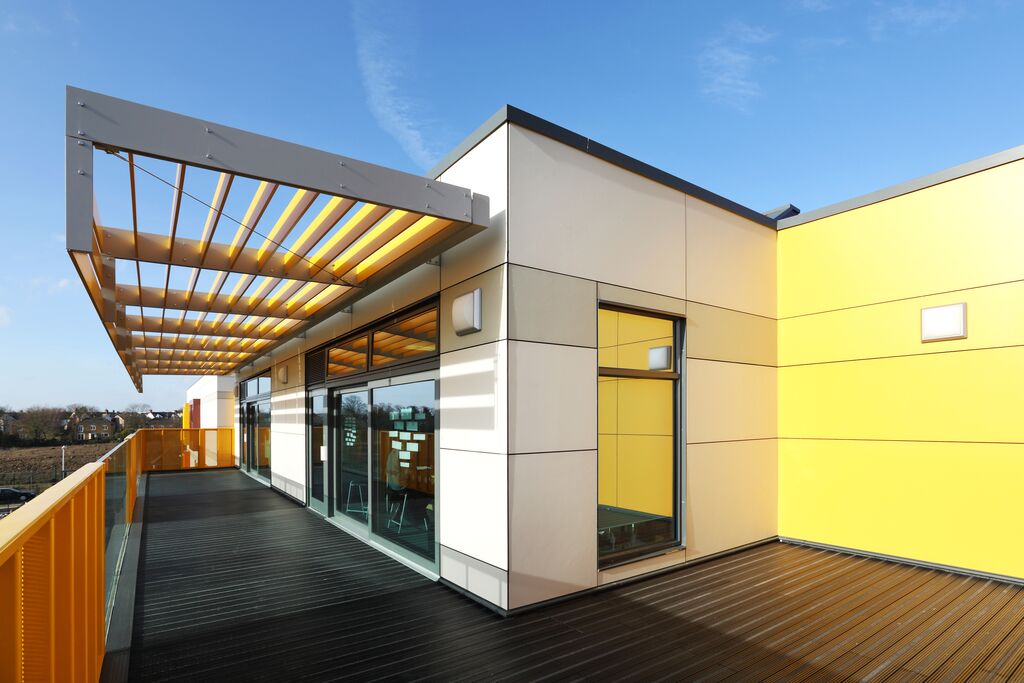Deck boards for commercial outdoor projects can be made from a number of different materials. The most common are timber, composite, aluminium and PVC. In this post we review each material, focusing on its durability and expected lifespan.
The expected lifespan of common decking materials
Timber
Timber decking is a common choice for landscaping projects – especially on domestic properties. It is, however, also susceptible to damage from the elements. Timber therefore requires regular treatment in the form of sealing, staining or painting to keep it protected, and prevent it from splintering, warping, and rotting over time. The longevity of timber decking will depend on the species of wood chosen, for example hard woods will last longer than soft woods and require less maintenance.
PVC decking
PVC decking does not need any paints or treatments to protect it and it will not splinter or rot over time. It’s also easy to maintain, requiring only an occasional sweep and rinse with water. As such, PVC decking will last much longer than traditional timber. However, it’s worth considering that some PVC decking may not be suitable for commercial areas with high footfall.
Composite decking
Composite decking is a combination of recycled materials and sustainably-sourced wood. This makes for a highly practical deck board that emulates real timber. It requires no treatments and can be cleaned with a sweep and a rinse. It will not rot, warp, or splinter, and is slip-resistant, making it safe underfoot. All of this combined means composite decking is ideal for commercial environments as it is built to last – and accompanying warranties will usually reflect this.
Capped composite decking
Capped composite deck boards have a protective covering over the wood composite. This layer helps prevent fading and staining for increased durability.
Aluminium decking
Aluminium is an extremely durable material and ideal for manufacturing deck boards. Most aluminium deck boards are powder-coated making them even more hardwearing. Aluminium is also non-combustible and light weight meaning it can be used for decking high-rise balconies, walkways and roof terraces.
What else can impact the life expectancy of decking?
There are a few factors that can affect the lifespan of decking:
Cleaning and maintenance
Regardless of the type of board, it’s important to ensure a regular cleaning routine. Some materials are easier to clean than others, such as PVC, aluminium and composite – these simply need to be kept free of debris and rinsed down with water. This will help prevent the build-up of dirt and mould, which can cause problems such as a slippery surface and discolouration.
The environment
The location of the decking will play a key role in how long it will last and decking exposed to the elements will wear faster. For example, when decking is installed near water, it’s important to consider the base structure of the deck as well as the boards. Aluminium and composite bases are much more resilient to moisture and damp than timber alternatives.
In addition, warm weather can and direct light may cause some surfaces to discolour slightly or fade. In such extreme conditions a capped composite deck would be a consideration.
To find out more about Ecodek’s aluminium and composite decking and its many benefits, call our friendly team today on 01978 667 840.
